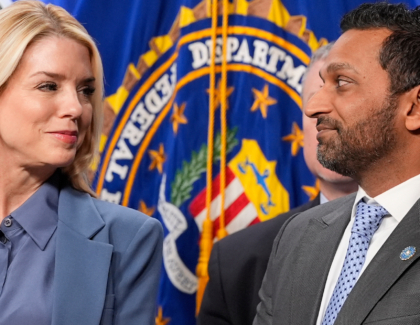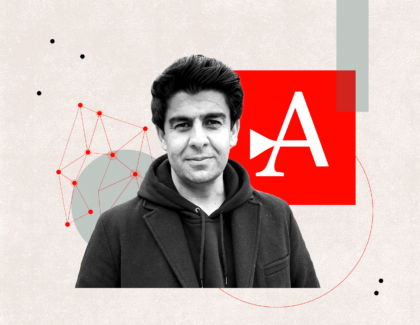Sign up for the daily CJR newsletter.
COLORADO SPRINGS, CO — Last month, just before a much-anticipated debate with his Republican challenger, Cory Gardner, US Sen. Mark Udall hopped into the bed of a pickup truck at a small rally in Grand Junction and grabbed a microphone.
One of the first things the Colorado Democrat shouted to the crowd was that he wanted to raise the minimum wage. It wasn’t a controversial statement, a gaffe, or really even all that surprising. Raising the minimum wage is a big issue for Democrats around the country this year, as their party struggles to hold onto the Senate during the midterm elections.
But you might not know that from following the race here. Udall’s comments on the stump that day didn’t come up during the debate that evening, or during the next day’s reporting. In fact, the issue has been nowhere near the forefront of coverage throughout the campaign: a Google search for “Mark Udall minimum wage” brings more prominent links to his own website than to local media accounts.
There are some explanations for this. The federal minimum wage isn’t the biggest issue in this election. No matter what happens in this Senate race and others around the country, the GOP-led House will oppose an increase. Udall hasn’t focused on the issue in his campaign ads.
Still, it’s an important issue that’s on the political agenda, and it’s easy to explain. This should be low-hanging journalistic fruit. And I think the lack of attention to Udall’s stump speech that day, and the minimum wage more broadly, underscores a broader point about coverage of the Senate campaign in Colorado: there’s been a lack of contextual, sense-making reporting that explains to readers what’s at stake, and a struggle to expand the agenda beyond the narrow set of issues that dominate the candidates’ talking points and TV ads. (Last week, I offered a similar critique of coverage of the governor’s race here.)
That could change this week. After a debate on business issues Monday night, Udall and Gardner are set to meet for two more debates, one tonight at 6pm in Denver, sponsored by The Denver Post, and another at 7pm Thursday, sponsored by The Pueblo Chieftain, about two hours south. Both events offer an opportunity to liven up coverage of the campaign—either by putting some sharp questions to the candidates, or by highlighting important angles that have been neglected.
Explaining what’s at stake & expanding the agenda
Coverage here, and elsewhere, has made clear that this election matters because it will help determine partisan control of the Senate for the next two years. The morning after Election Day, President Obama will still be in the White House, and Republicans will surely still control the House of Representatives, but it’s an open question whether the GOP will take the Senate from Democrats.
What the coverage hasn’t always done is explain, in concrete terms, why a change in control would matter, both immediately and into the future. “How important this race is, is not reflected in any way in either the coverage or by the principals,” says Mike Littwin, a longtime columnist for the now-defunct Rocky Mountain News and The Denver Post who now writes for the digital nonprofit Colorado Independent. “It’s up to the media to force their hand here. They are just not.”
To do that, reporters have to devote some time to what the respective parties’ national agendas are and which parts of that agenda they’ll have the upper hand on—which doesn’t necessarily correspond to the issues candidates are hammering on for a statewide audience.
A good example of this type of reporting is a recent piece by Ezra Klein at Vox about what Republicans will likely do if they take control. The main take-aways: Republicans would be in position to block Obama’s appointments to executive branch agencies and lower-level courts, and a united GOP would have much more power to block a Supreme Court nominee in the event of a vacancy. That’s a big deal. Also, while legislative gridlock would likely continue on most issues, it’s possible the controversial Keystone XL pipeline could proceed. There’s nothing Colorado-specific about that report, but it’s all relevant to Colorado voters.
Beyond that sort of nuts-and-bolts look at how power might shift, the coverage could do more to expand the issue agenda of a campaign that, as The Denver Post’s Lynn Bartels wrote, has been so focused on reproductive rights it might as well be set in a “gynecologist’s office.” Here’s where the debates could be especially useful.
I’d like to see a discussion over that federal minimum wage hike. Littwin brought up the need for a clearer look at what the race might mean for the future of immigration reform—this MSNBC report is probably the best I’ve seen on that issue—and more specifics about how Gardner and other Republicans would seek to change Obamacare. (The law’s flaws are a standard Gardner attack line, but as conservative writers have noted the GOP has said little to nothing about what it would offer instead.)
And then there are the fiscal issues around safety net spending and entitlements, which dominated Beltway discourse a few years ago and could return after the election. Littwin noted that Udall has actually staked out a conservative position there, proposing a balanced budget amendment in 2011. It hasn’t come up as a campaign issue—and Gardner’s not likely to attack the incumbent for that proposal—but it’s an issue reporters might explore.
Trying to clarify the personhood debate
Those issues and others haven’t gotten much media play in part because one topic has attracted so much attention: personhood, or efforts to legally define a fetus or fertilized egg as a person. Gardner’s relationship to that issue (which Udall is trying very hard to keep in the news), and the candidates’ views on the larger set of reproductive rights questions, do matter. And since the effects of a personhood measure passing are a little unclear, and since Gardner hasn’t offered a clear explanation of his current position, it’s understandable that the coverage has at times been unsatisfying. But it’s time to try to advance the discussion here.
The basics of the issue: This year Colorado voters will decide on a ballot measure that would define “person” and “child” in the state’s criminal code to include “unborn human beings” and fetuses. It should be a familiar issue to voters here, who shot down similar measures by more than 70 percent in 2008 and 2010. Gardner, who generally opposes abortion, supported the earlier measures. But in March, he dropped a bombshell when he told The Denver Post’s Bartels that backing the initiatives was a mistake, and that when he learned the measures could ban certain forms of contraception he changed his position. A few months later, he announced that he favors giving woman over-the-counter access to the pill.
So what’s the confusion? Gardner is still a sponsor of a federal measure (which isn’t likely to come up for a vote) known as the Life at Conception Act that would offer equal protection “for the right to life of each born and preborn human person,” beginning at the moment of fertilization. Though it doesn’t use the term, personhood advocates consider it a personhood bill. Factcheck.org concluded the language in the federal bill “is exactly what raises the question of what [personhood measures] would mean for some forms of birth control.”
But asked to explain this discrepancy, Gardner offers a stock answer: “There is no federal personhood bill.” It’s what he said in an early September TV interview with Brandon Rittiman of 9News in Denver, and again four times in a must-see interview with KDVR’s Eli Stokols. (That prompted Stokols to cite Factcheck.org and say at one point, “Do you really think that just telling me that it’s not a personhood bill makes it not?”) A Durango Herald reporter got similar stonewall treatment.
Jason Salzman, the former media critic for the Rocky Mountain News, has probably written more on the nuances of this issue than anyone else in Colorado at his BigMedia blog. His advice to reporters facing such remarkably disciplined and obfuscatory responses: Get specific.
“You have to doubt that Cory Gardner is going to say anything different if journalists ask him new variations on the same federal personhood question,” Salzman said. But reporters should do it anyway, he added, while explaining exactly what the measures might mean in practice should they pass.
He continued:
Reporters should also try, “You’ve said the Life at Conception Act wouldn’t ban birth control, but as you know, the phrase ‘birth control’ means different things to different people. So, do you consider IUD’s and Plan B to be birth control? Would the Life at Conception Act ban IUD’s and Plan B?’”
And with so much of the personhood debate focused on birth control, Salzman pointed out, there’s been little discussion of what it means for abortion. Gardner’s campaign says he favors exceptions in cases of rape, incest, and when a pregnant woman’s life is endangered. Democrats say the federal bill amounts to a blanket ban—a claim PolitiFact rated “half true.”
It’s worthwhile for reporters to push harder for answers on some of these specific threads. But it’s also time for reporters to take more control of this discussion. If Gardner—or Udall, for that matter—persists in saying things that don’t quite add up, reporters should figure out where the truth lies as best they can, and give it to readers and viewers straight.
How the campaign is being waged
There’s another Senate-race storyline I’d like to see more of in local coverage, even if it’s not really debate material. This will be the first election where every voter in Colorado will be able to vote by mail, after receiving ballots weeks before Election Day. Coverage here has focused on the TV ad wars, but in the eyes of some observers, the new rules put a premium on the ground game and personal contact with voters.
In a recent episode of 9News’s Balance of Power program featuring Meet the Press host Chuck Todd, reporter Rittiman noted how the new rules have made Democrats more bullish. Todd responded:
Tactically, Democrats in Colorado have an advantage because of the system … because of how well the Democratic ground game has been built over the last two or three election cycles in Colorado … Ever since this shifting to both an early vote and a mail-in ballot vote Democrats have just dominated that tactical advantage, and that’s why I still think you hear such confidence out of the Democrats in this race as opposed to others that they’re worried about.
That’s a fascinating angle ripe for enterprise stories about the connection between state legislative actions and the way statewide campaigns are conducted.
In some ways, as the journalist Reid Wilson wrote in 2013, what’s happened in Colorado is the flipside to voter ID rules pushed through by Republican legislatures. Now at The Washington Post, Wilson returned to the subject recently with an on-the-ground look at how the voting rules are shaping the campaign. “Registered voters identified as likely supporters of a given candidate will hear from that candidate’s campaign—endlessly, incessantly, by phone and in person—until they send back their ballots,” he wrote. “Once a county elections office reports receiving a voter’s ballot, the door knocks will stop, and the phone will fall silent.”
Democrats likely have an edge here—but as The Wall Street Journal just reported, Republicans are striving to catch up.
The Denver Post’s new DC reporter, Mark K. Matthews, did write an in-depth Sunday front-pager in mid-September about the “ground war.” But other than that, and Rittiman’s exchange with Todd, almost all the interesting coverage I’ve seen has come from national media.
I hope that changes. It’s not about “the issues,” but this is an interesting political story that can explain to voters what the campaigns are doing, and—if they’re so inclined—how they might get involved.
And in general, I hope the campaign and the coverage of it gets more life soon—starting this week.
Has America ever needed a media defender more than now? Help us by joining CJR today.






